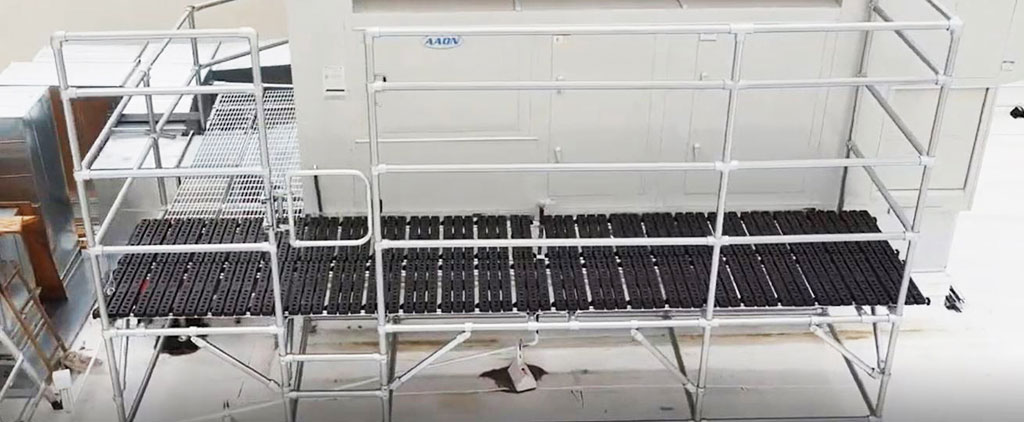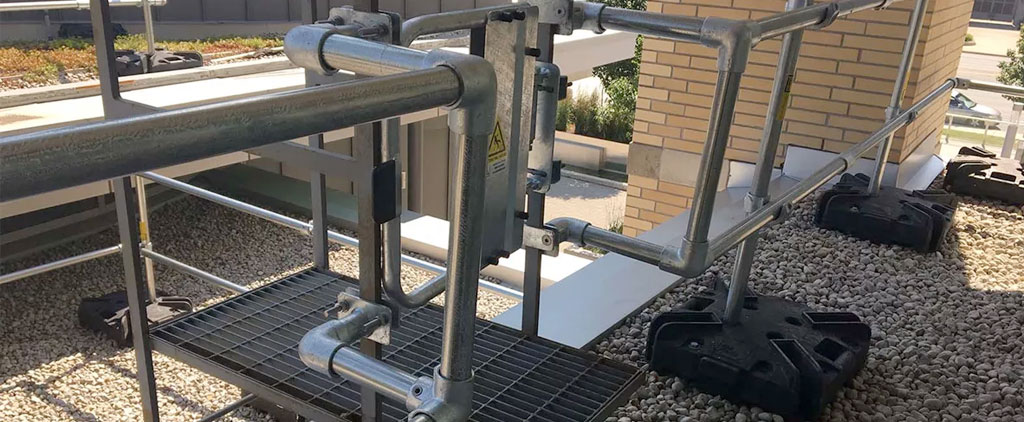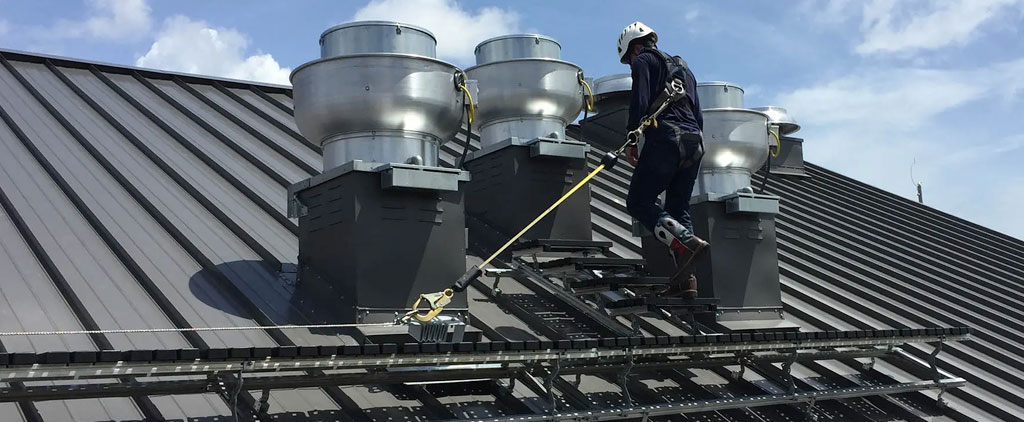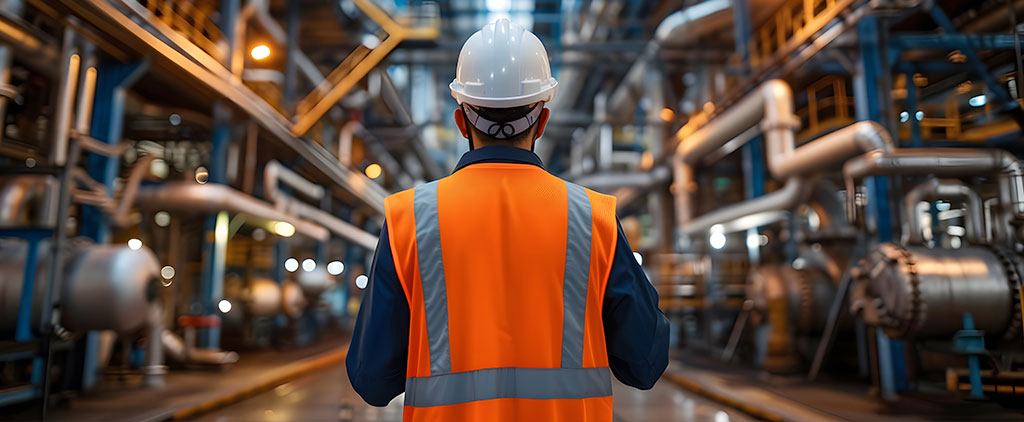Safe Access and Fall Protection for the Plastics Industry
Babies not old enough to read are advised to avoid plastic toys small enough to swallow. And rarely are they deterred from attempting to open a child-proof plastic cap, no matter what the label says.
But think of how plastic is used for child safety. Heat-resistant smoke detectors, electrical outlet covers, and locks and guards to secure low-lying cabinets are made of plastic.
Likewise, workers in many industries wear plastic hard hats, goggles, face shields, vests, and disposable gloves. Plant workers that produce plastic goods use these safety products; however, what measures are taken to protect them from slips and falls from elevated heights that could result in severe injury, subsequent lost-time claims, and a drop in productivity?
Identify the hazards.
Before someone takes a wrong step, the first step is to identify where employees need to work at height. At a plastics processing plant, these can include:
- Large Machinery – Accessing equipment for production, quality control inspections, and maintenance.
- Material Handling – Transporting raw materials and finished products often involves climbing ladders or working at raised heights and loading docks.
- Chemical Processing – Handling and monitoring large chemical reactors and storage tanks.
- Storage Areas – Retrieving items from elevated storage racks or silos.
- Rooftop – Servicing heating, ventilation, air conditioning (HVAC), and other building services equipment.
These tasks require safe access platforms, gates, railings, and other fall protection systems to ensure worker safety.

Safe access platforms.
A safe access platform may be the most valuable and versatile fall protection solution inside a plastics processing plant. Their modular design makes them adaptable for working on machinery and other large equipment. Their built-in safety features provide workers with fall protection that meets regulatory standards while allowing them freedom of movement to perform their tasks productively.
For design flexibility, safe access platforms use pipe-fitted frames and guardrails made from anodized aluminum or galvanized steel to provide high load capacities, long-lasting service, and corrosion resistance. Platform steps and decks feature anti-slip, non-bounce, self-draining treads. Depending on the task at hand, platforms can be:
- Fixed (or static) platforms are ideal for permanent workstations, where tasks are performed frequently, and to access hard-to-reach areas.
- Mobile platforms are equipped with heavy-duty locking casters for station-to-station portability without the hindrances and safety issues of ladders.
- Adjustable height platforms are fabricated to raise and lower to different heights at the same workstation.
- Custom work platforms can be designed to build catwalks and complex systems engineered for specific tasks and equipped with shop services (e.g., electrical, air, water).
Around and about with guardrails.
Guardrails are another versatile fall protection system that enhances safety throughout a facility. Pipe-fitted aluminum or galvanized steel railing systems provide fall protection at mezzanines and loading docks. They are used as machinery guards and to designate authorized zones or safe walking areas. Self-closing safety gates in a guardrail system or at stairs with railings automatically close as the worker passes through.

Comprehensive rooftop safety.
An unprotected rooftop presents several hazards for maintenance and repair workers who service HVAC and other plant equipment. A protected rooftop will include systems and equipment including:
Self-closing gates help prevent workers from falling backward as they access the roof through a ladder system or hatch. Once the worker is safely on the roof, the gate is a barrier to prevent a fall through the access opening.
A roof edge guardrail system is ideal because it provides “collective” fall protection that protects multiple workers at once without special equipment or training. Aluminum or galvanized steel modular railings can fit virtually any roof configuration and are installed without penetrating the roof membrane. The system uses recycled PVC for counterweight bases—a footprint that reduces the carbon footprint.

Employing the same anti-slip treads used on access platforms, roof walkways designate pathways for workers to use so they do not wander into potentially unsafe areas. Walkways also prevent wear and tear of the roof’s surface from foot traffic and can be fitted with guardrails to provide added fall protection.
Industrial rooftops can be cluttered with extensive ductwork, conduits, cables, pipes, and other obstructions that present slip and fall hazards. A crossover platform has anti-slip treads for steps and platform decks enclosed in modular, pipe-fitted frames and guardrails. The stairs on each side can be of different heights to accommodate changes in the roof level.
Reprising their invaluable role inside the plastics facility, access platforms on the rooftop enable workers to reach panels, vents, instruments, and other sections of large equipment that require monitoring, inspections, maintenance, or repairs.

How can we help you?
Prioritizing fall protection is essential for safe interior access and sending maintenance and repair workers outside for safe rooftop access.
If you are responsible for safety, accessibility, or events management, FlexDecks can help. Our comprehensive services include hazard assessments, design and consultation, engineering, manufacturing, installation, and follow-up inspections and maintenance. Contact us for an evaluation of your facility’s safety needs.
